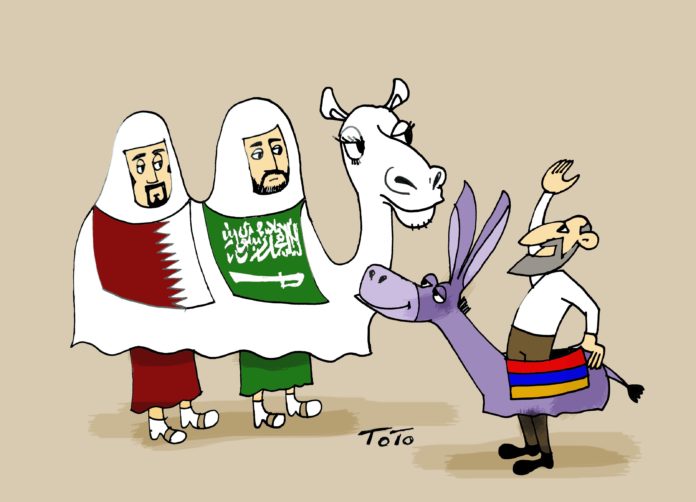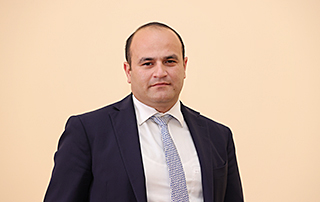Despite all the internal and external challenges plaguing the country now, Armenia is flexing its nascent diplomatic muscles around the world. In some cases, other countries are approaching Armenia because they have interests in the Caucasus. It remains to be seen how Armenia’s inexperienced leaders will take advantage of the developing relations, balancing one country’s interests against the others and pursuing its own agenda through the trials and tribulations of international politics.
One of the untapped fields for Armenia in terms of international relations has been the Arab world, where large diasporan communities have existed since the Genocide a century ago.
During the Soviet period, the central government made sure to assign ethnic Armenians to its embassies in Arab countries. However, since Soviet foreign policy was guided more ideologically, Moscow’s interests were different than Armenia’s today. Since independence, Armenian leaders have viewed and treated Arab countries through the prospective of the Soviet rulers as backward and part of the third world. It took some time to awaken to the fact that business opportunities were shifting to the Arab world despite turbulence in the region. First world countries like France and the US are making overtures there; branches of the Louvres and the Guggenheim are opening in Abu Dhabi.
Also neglected by Armenia’s leadership was the high standing of the Armenian communities in Arab countries. Unlike the Turks, Muslim Arabs appreciated and respected the creative and hardworking Armenians living with them.
Despite the distorted views presented by the Western media, countries like Iraq and Syria were dynamic, viable and self-sufficient nations, if not paragons of democracy in Western eyes. The governments and peoples of those countries held in high regard the Armenians and their contributions to their respective societies.
Egypt has played a pivotal role in the Middle East, always wielding great influence throughout the Arab world. Although few in numbers in a large country with a population of 102 million currently, Armenians there have played an important role in politics, the economy and education since Nubar Pasha served as prime minister in the 19th century.








